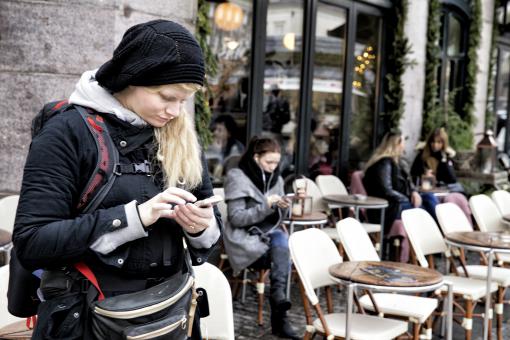SMART CITY THINK-TANK TO FOCUS ON FUTURE CITIES
A new think-tank is to emphasise the needs of people in the face of the digital revolution. The think-tank has been set up by Carsten Hansen, the Minister for Housing, Urban and Rural Affairs. And the chair is to be Martin Brynskov, an associate professor of information studies at AU.

Digital developments lead to both opportunities and fundamental challenges for our cities, our society and our everyday lives. Which is why Carsten Hansen, the Minister for Housing, Urban and Rural Affairs, is setting up a think-tank called “Digital cities of the future – for and with people”. The think-tank will identify the most important digital tendencies and their impact on citizens, as well as giving specific ideas about how to create living cities which are based on the needs of people.
“Digital developments have given us new opportunities to make our cities even better places to live in – also in a future facing both climatic and demographic changes. For instance, we could introduce more efficient traffic management systems and save resources on intelligent street lighting. But the new technology also opens up new opportunities for democracy and inclusion. Which is why the task facing the think-tank is so important,” says Hansen.
A lot of Danish municipalities have already made great progress in both thought and deed when it comes to introducing smart city solutions. The digital revolution is in full swing, and both municipalities and companies are already seizing the new opportunities for ensuring a better and more intelligent infrastructure, increasing citizen inclusion via digital platforms, and saving energy.
“Data, technology and digital platforms will be the cornerstones of all future development, and we want to have a say in where this development takes us. As a society we need to ensure that digital developments maintain a human and democratic approach. This requires a broad debate involving many different areas, which in turn demands a firm focus, political direction and strong cooperation. The think-tank will help to make it happen,” says Hansen.
The think-tank is cross-disciplinary, with some members possessing great insight into digital solutions and others who are experts in urban development.
There are 16 members from universities, municipalities, organisations and the private sector. Martin Brynskov, an associate professor of information studies, will chair the think-tank. He is also the chair of the European Connected Smart Cities network, and has considerable knowledge of smart cities.
“I look forward to using the think-tank to study everything from automatic cars and shared financing systems to the physical design and planning of the framework for life in digitalised cities. So we can use the technology as efficiently as possible. The think-tank will focus on the most important measures and cut through a cloud of rhetoric to provide concrete recommendations,” explains Brynskov.
The think-tank is expected to produce its recommendations and proposals for debate in mid-2015.
